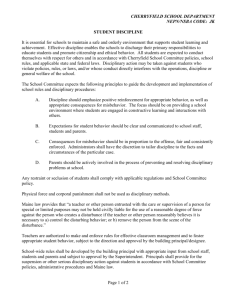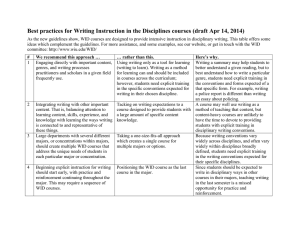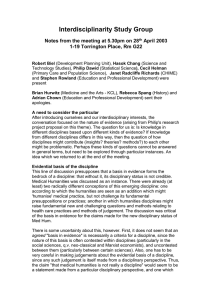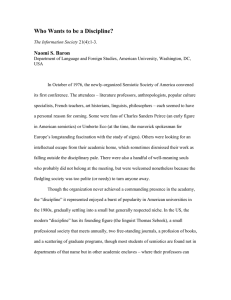WID Guidelines (recast as bullets)
advertisement
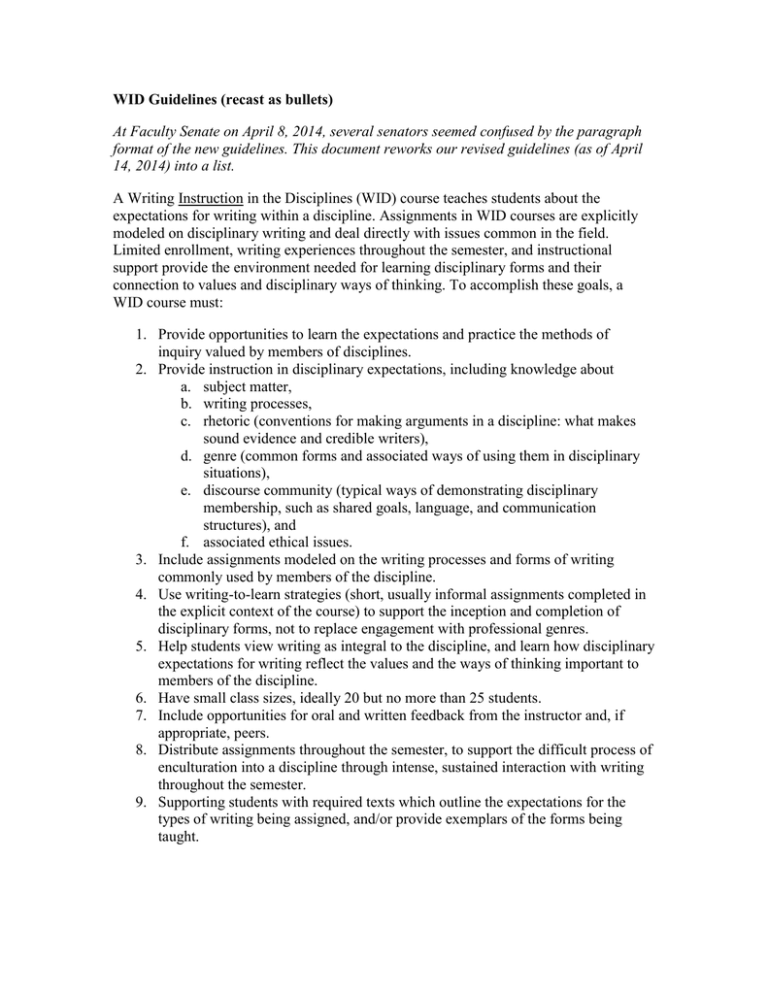
WID Guidelines (recast as bullets) At Faculty Senate on April 8, 2014, several senators seemed confused by the paragraph format of the new guidelines. This document reworks our revised guidelines (as of April 14, 2014) into a list. A Writing Instruction in the Disciplines (WID) course teaches students about the expectations for writing within a discipline. Assignments in WID courses are explicitly modeled on disciplinary writing and deal directly with issues common in the field. Limited enrollment, writing experiences throughout the semester, and instructional support provide the environment needed for learning disciplinary forms and their connection to values and disciplinary ways of thinking. To accomplish these goals, a WID course must: 1. Provide opportunities to learn the expectations and practice the methods of inquiry valued by members of disciplines. 2. Provide instruction in disciplinary expectations, including knowledge about a. subject matter, b. writing processes, c. rhetoric (conventions for making arguments in a discipline: what makes sound evidence and credible writers), d. genre (common forms and associated ways of using them in disciplinary situations), e. discourse community (typical ways of demonstrating disciplinary membership, such as shared goals, language, and communication structures), and f. associated ethical issues. 3. Include assignments modeled on the writing processes and forms of writing commonly used by members of the discipline. 4. Use writing-to-learn strategies (short, usually informal assignments completed in the explicit context of the course) to support the inception and completion of disciplinary forms, not to replace engagement with professional genres. 5. Help students view writing as integral to the discipline, and learn how disciplinary expectations for writing reflect the values and the ways of thinking important to members of the discipline. 6. Have small class sizes, ideally 20 but no more than 25 students. 7. Include opportunities for oral and written feedback from the instructor and, if appropriate, peers. 8. Distribute assignments throughout the semester, to support the difficult process of enculturation into a discipline through intense, sustained interaction with writing throughout the semester. 9. Supporting students with required texts which outline the expectations for the types of writing being assigned, and/or provide exemplars of the forms being taught.


